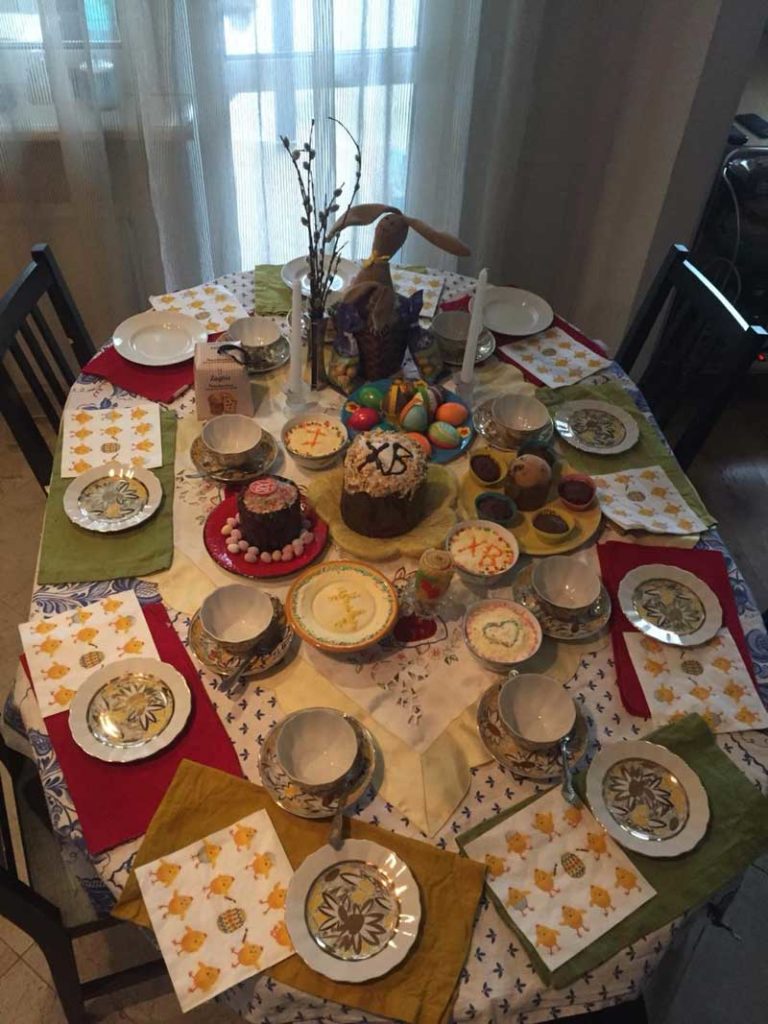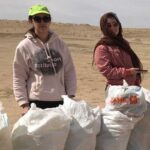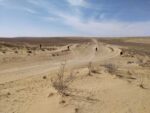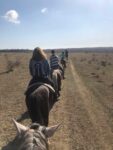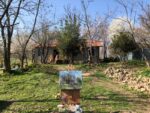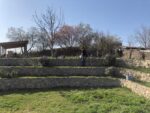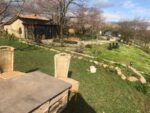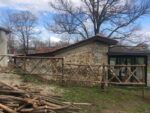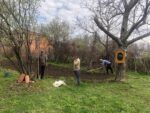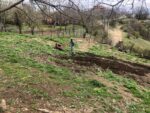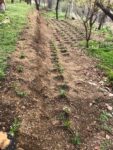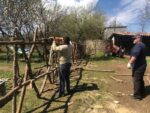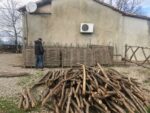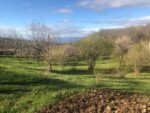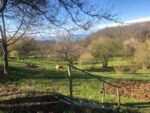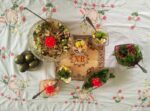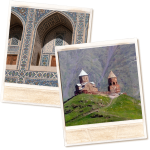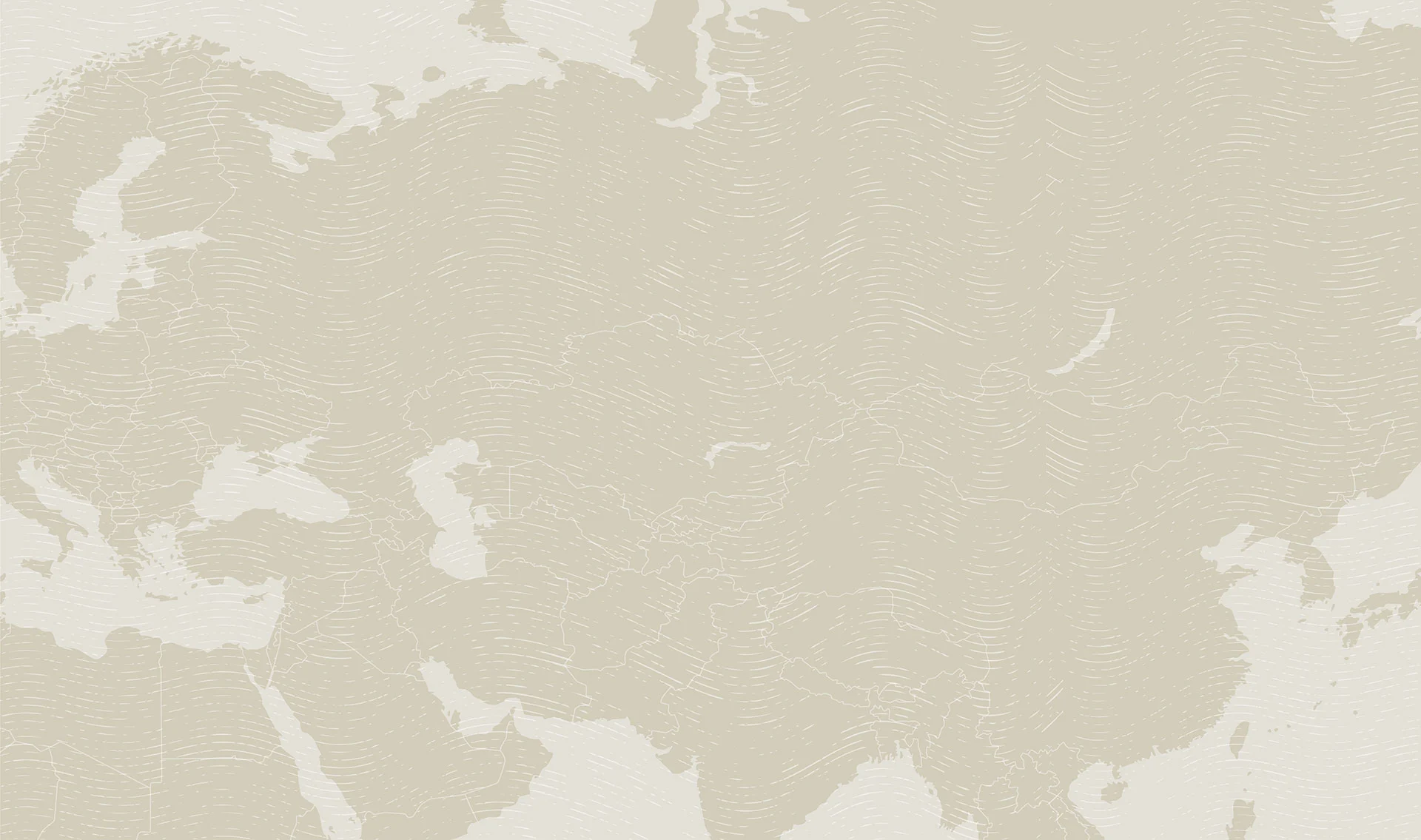Photo credit: Elena Trofimova
Field Notes: Connecting People From Afar – Turkmenistan, Georgia, Russia
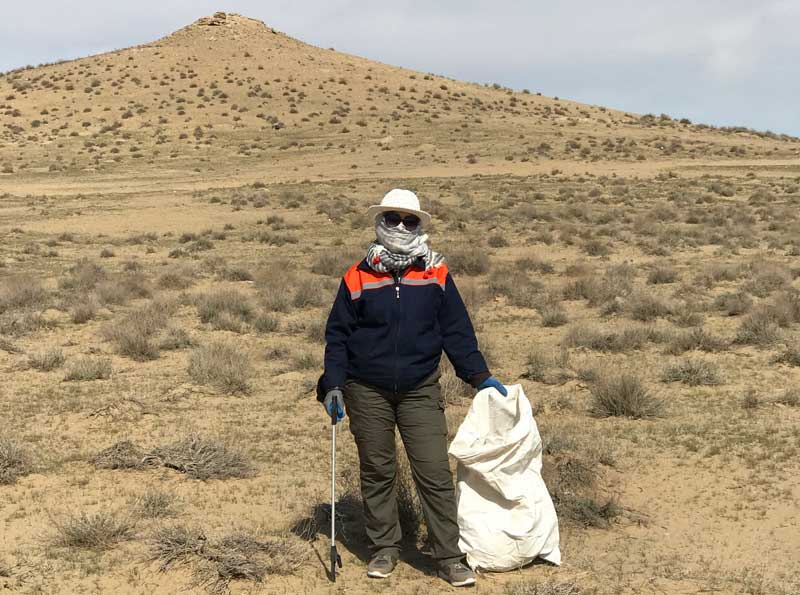
For 35 years, MIR, whose name means peace and world in Russian, has had a singular purpose: connecting people through travel in destinations farther from the familiar. We know from traveler feedback, and as travelers ourselves, that what’s most memorable about a journey is the people you meet along the way—the guides, drivers, tour managers, behind-the-scene coordinators, local villagers in the bazaars, the friendly restaurant wait staff, the families who invite you in to share a meal…
While we can only connect from afar at this time, our teams in our affiliated offices in Siberia, Western Russia, Central Asia, the South Caucasus, and Ukraine together with our network of partners spread from Tbilisi to Tallinn to Tirana are doing their best to stay in good health and stay connected as we all look ahead to the future.
We hope you enjoy learning about how MIR people in the field are spending their time trying to make a difference even in challenging times. Read our field notes from three MIR destinations – Turkmenistan, Georgia, and Russia – and their efforts to preserve the local environment, plant for the future, and keep traditions alive.
Turkmenistan – Preserving the Environment
With tourism at a standstill, an enterprising group of guides, drivers and office coordinators joined together on their own initiative to do what they could to help keep one of the planet’s most eclectic ‘natural’ wonders in tip top shape for future guests to enjoy. Small positive actions can make a big impact on this desert environment, and this one came in the form of organizing a series of trash collection days at the Darvaza gas crater and yurt camp area.
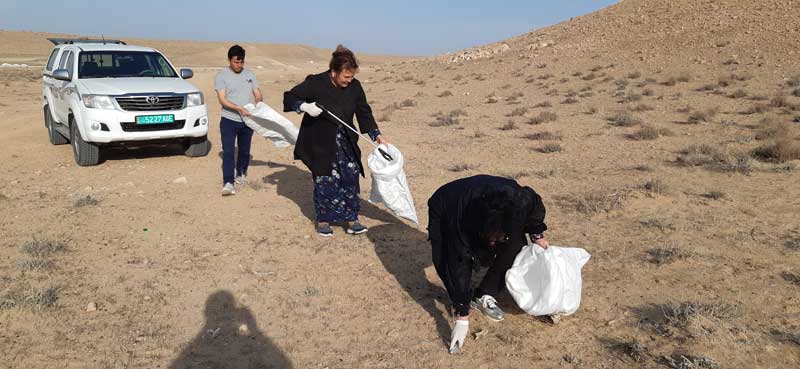
Our trusted partner Elena Tromifova and our beloved guide Jabbar, among others, took part in organizing the effort in this very remote locale in Turkmenistan. On the first of many planned cleanups, the crew estimated they picked up over a half-ton of trash!
(click image to view larger photo)
Located about three hours drive from the country’s capital, Ashgabat, the Darvaza Gas Crater is situated in a remote area in the Kara Kum or Black Sands Desert. Nicknamed the “Door to Hell,” Darvaza was a site of Soviet natural gas exploration in the 1970s. The story goes that while workers were drilling into an underground cavern, the ground collapsed and created a large sinkhole, swallowing the drilling rig and releasing deadly methane gas. Engineers decided to burn off the gas to make the cavern safe for more drilling. More than 40 years later, Darvaza’s fire is still burning strong.
(click image to view larger photo)
It’s a place like no other – an odd but fascinating destination – best seen at night, when the crater’s eerie glow is visible from miles away. The experience is even more amplified if you camp overnight in tents pitched near the crater’s edge. You can easily get lost staring at Darvaza’s flickering flames, just like when you’re sitting around a campfire.
Elena and her crew’s creative use of what would have otherwise been social-distancing downtime will help keep Darvaza’s glow welcoming adventurous travelers when travel is back on the menu!
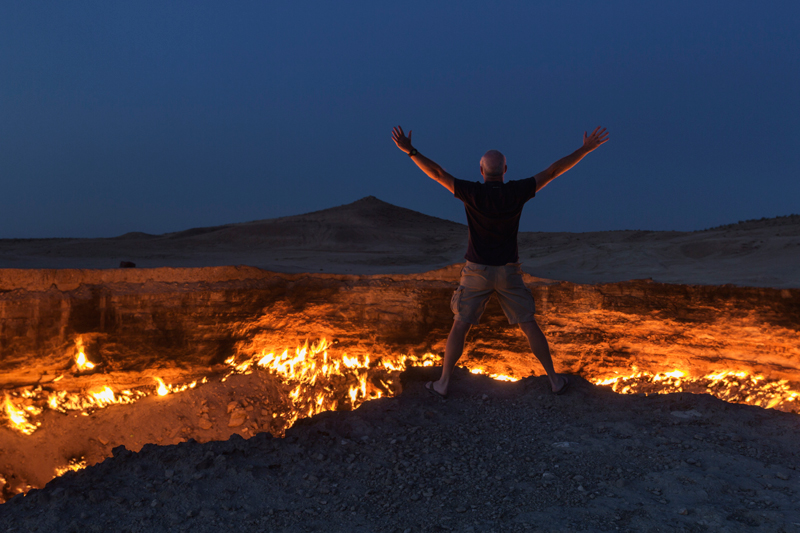
Georgia – Planting for the Future
The connection and reverence Georgians have for the land is a deeply engrained part of Georgian life. Perhaps it’s because the soil here at this crossroads of east and west, set in the shadow of Europe’s highest peaks and bordered by the Black Sea, is so rich, fertile and unspoiled. Perhaps it’s because of the amazingly diverse natural landscapes that blanket this tiny country. Perhaps a history of foreign invasion has helped Georgians remain solidly rooted in their land – but whatever the reason there’s no question that the land is tied up in the Georgian dream: to have a small plot of land, somewhere in a village, perhaps with a garden, a vineyard, and an orchard.
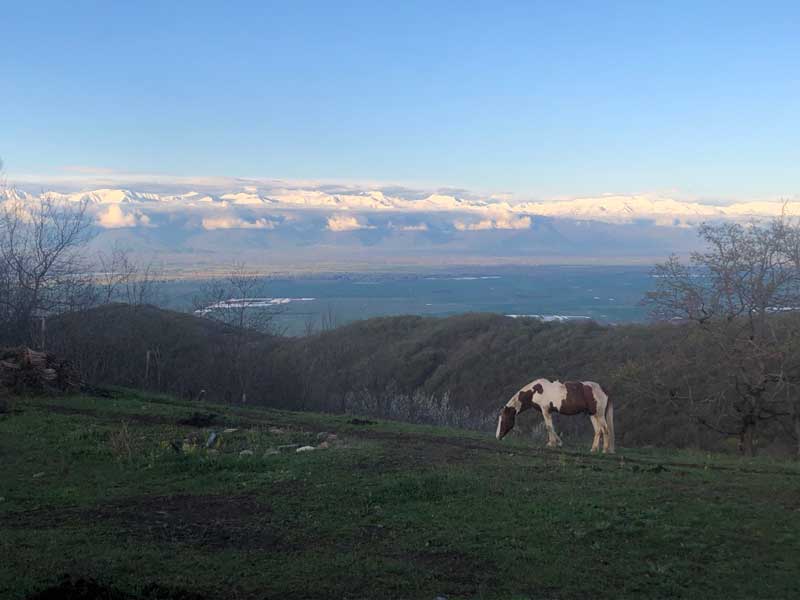
In this rich setting, national traditions become highly localized ones. The Georgian table traditions of joining together with friends and family for meals amidst wine and song are a national pastime exercised at the most intimate local level – with naturally grown fruits, vegetables and naturally fermented wine a staple at village tables across the land.
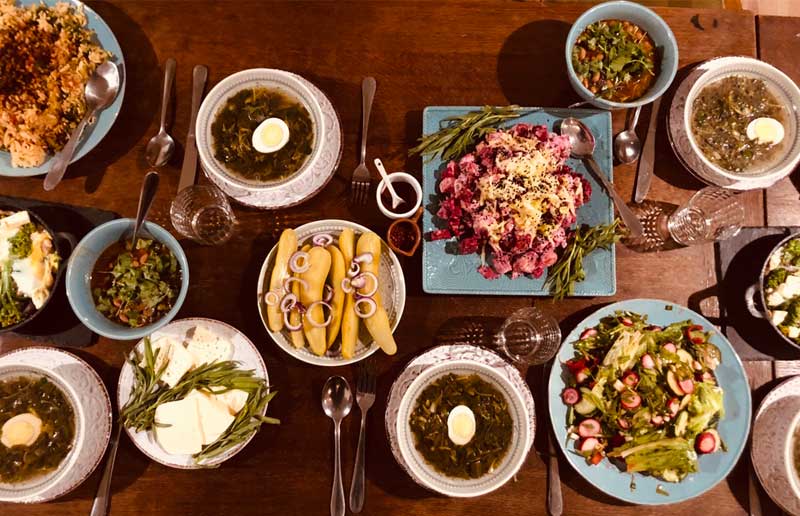
Sleepy Qedeli village on the edge of the wine trail in Eastern Georgia is no exception, and local tourism investment here has fostered the development of the village into a destination with its own unique sense of place, creating a reason for travelers to linger longer here and providing local employment opportunities, all while preserving a typically Georgian connection to the land. The rich soil and warm social traditions are manifest in Qedeli’s boutique inn, horse ranch, Nano-brewery, organic fruit orchard, and landscaped gardens.
(click image to view larger photo)
While the Georgians practice social distancing, dining only with their families for the moment, they’re still planning – and planting – for the future, looking forward to the days when they can once again share their tables of homegrown natural and nourishing foods with guests.
(click image to view larger photo)
Our long-time Georgian partners and friends John Wurdeman and Ia Tabagari are making use of their time, and keeping local villagers employed, by tending the soil together and planting vegetable gardens of potatoes, eggplants, tomatoes, onions, garlic, various legumes and strawberries. In the spirit of Georgian hospitality these will be shared with villagers and, when possible again, with guests from near and far. They’re also building and replacing fences, charting new self-guided trails for hiking and horse trekking, dreaming up new recipes, conducting sourdough bread making experiments, brewing kombuchas, and fermenting kefir.
(click image to view larger photo)
The pandemic will pass, social distancing requirements will lighten, and, as they have done for millenia, Georgians will welcome guests to their corner of the world, sharing the bounty of their rich soil and warm traditions.
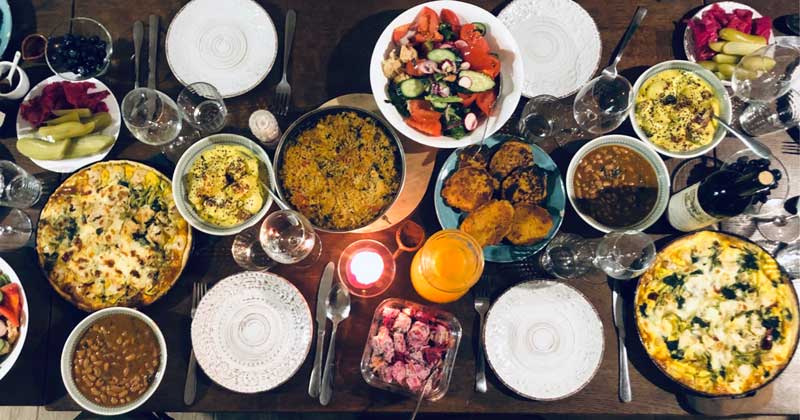
Russia – Keeping Traditions Alive
Easter is the most popular religious holiday in Russia. Perhaps because Russian winters are cold and snowy and very long, Easter for Russians is associated with Spring, when nature wakes up. Traditionally a time to gather with family and friends and attend services at one of the country’s many Russian Orthodox churches, this year families self-isolated in their apartments or country houses while still keeping Easter traditions alive.
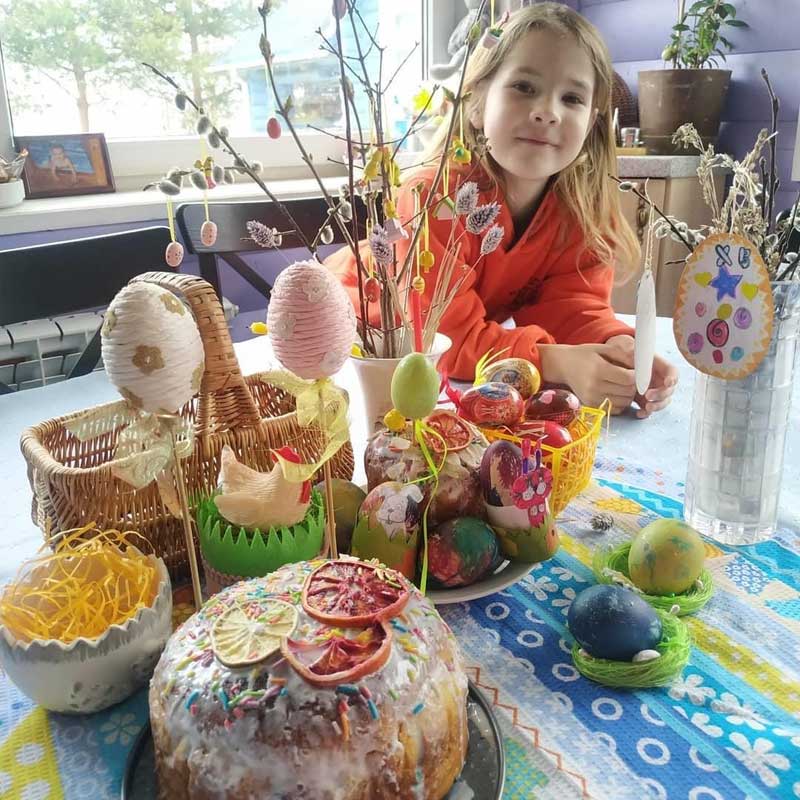
Ekaterina (Katya) Boyarskaya, MIR’s St. Petersburg Russia office director, is a woman of many talents. She is the author of several books, including one about her famous family heritage, and she is well known in the theater world. She has been a guide in St. Petersburg and a Tour Manager traveling the breadth of MIR’s destinations.
This year, Katya was one of those spending Easter at her country house or “dacha” outside of St. Petersburg – but that did not stop her from interacting with her friends and family over the phone. She says that because of the conditions of self-isolation, some traditions became more important than in other years.
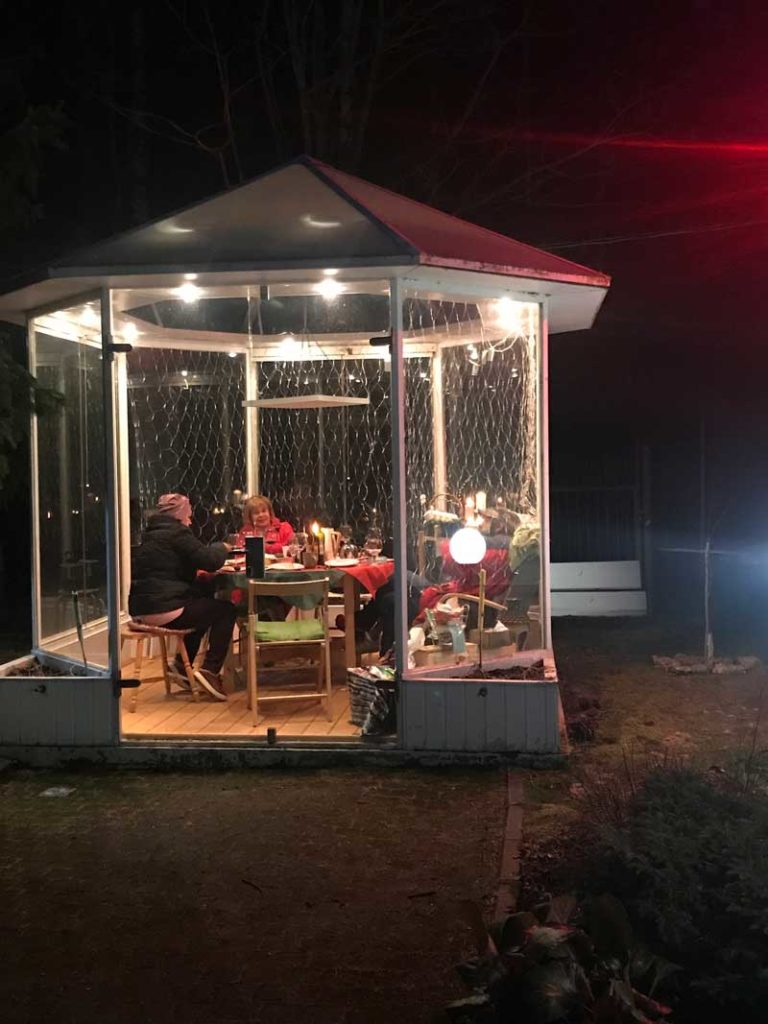
“It was really visible this Easter. Russians painted eggs, cooked “kulich” (a sweet tall cake with raisins) and made “paskha” (a dessert based on cottage cheese in the form of pyramid with cross stamped on it).” And this year, without easy access to shops, or to the family members who might usually make the traditional recipes, Easter became an opportunity to keep traditions in place with a new twist.
(click image to view larger photo)
“I really noticed a difference this Easter. In the past, many people would just go to the stores and buy already made Paskha and Kulich and colored eggs. But that was not the case this year, as Russians were home staying safe and healthy. I saw that my friends were trying to do all these things by themselves. People were calling each other and exchanging recipes and giving advice on how to prepare the dishes. There were entire videoconferences. Onionskins were used to give the eggs a natural color, along with bergamot and other herbs. People began to use their imaginations.”
(click image to view larger photo)
“On Easter Sunday people usually meet at lunchtime and eat eggs that have been hard-boiled and painted. They slice a piece of the paskha and put it on the kulich for a treat. But this year was different you know. We stayed at home.”
“My friends Nastya and Sasha Kuznetsov stayed home and celebrated. They stayed together in self-isolation in their flat with other members of their family including their three children, Nastya’s mother and her sister. It was a real family holiday and one to be remembered.”
